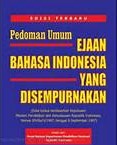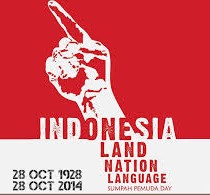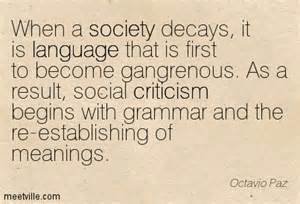What is the Indonesian language like? Posted by asimonoff on Oct 29, 2014 in Uncategorized
When it comes to learning a language, it seems like common sense does not always agree with us. Just imagine that you try very hard to understand the Indonesian idioms and expressions, but they still do not make sense to you, particularly if you are learning Indonesian as your first foreign language. However, there are characteristics of Indonesian you will find interesting; first, Indonesian uses passive voice more often than English in writing and speaking. Second, there is no grammatical distinction made between such words as “she” and “he” or “daughter” and “boy.” Third, the Indonesian language has no tenses. You can also find that Indonesian expresses singular and plural nouns in a unique way; one of them is by repeating the noun. However, as with most group-oriented societies, the group is held to be more important than the individual, and so is the social hierarchy. For example, someone will say, “the report has been completed (by me)” or “laporan sudah selesai” instead of saying, “I have completed the report.” Why? It is because, from a culture standpoint, the completed report is more important than the person who wrote the report, or you may also say that the completed report is a group effort. Therefore, you cannot claim it is yours alone.
By learning Indonesian, you will know about the Indonesian people: their habits, their ways of thinking, their traditions, and how they perceive themselves and the world around them. The Indonesian language has gone through a lot of changes from the old Malay to its conception as an official Indonesian language in October 1928. However, during Suharto’s new era, Indonesian went through a tremendous change. The Javanese language became an integral part of this development. It gives more depth to the language with more philosophical concepts added to the borrowed words and phrases in the language. Suharto, who has a Javanese background, was part of this change. His style of speech, which mixed Javanese and Indonesian, became an example of new Indonesian; everybody seemed so eager to pick up Javanese words or phrases as part of his or her speech.
Nowadays, many English words have been adopted into Indonesian. Even in the Indonesian newspapers, you can find English-translated-into-Indonesian expressions with the same meaning, such as “lempar handuk” or “throw in the towel.” The situation was described by the Indonesian linguists as a worrisome. According to them, it seems as if Indonesians do not bother to speak “a good and proper Indonesian” or “berbahasa Indonesian yang baik dan benar” anymore. Who is to be blamed? Well, who else? The journalists and the Indonesian leaders of course. Why? For some reason, Indonesian leaders become role models for how Indonesians speak their language. Isn’t it interesting? Don’t Indonesians have pride in their own language? Why don’t you find out about it?

Build vocabulary, practice pronunciation, and more with Transparent Language Online. Available anytime, anywhere, on any device.
About the Author: asimonoff
I’m an Indonesian language instructor, instructional material developer, reading test developer, and interpreter. I have been teaching Indonesian to adult students for 15 years, and have been teaching students from many backgrounds, such as private, military and diplomatic service employees. I’m Indonesian, but am living in the US now; my exposure to different cultures in my home country and in the US has enriched my knowledge in teaching Indonesian as a second language. I approach the teaching of the Indonesian language by developing students’ critical cultural awareness and competence. This method of teaching has been proven to be a key to the success of my students. Students become conscious of the essential role culture plays in the language.











